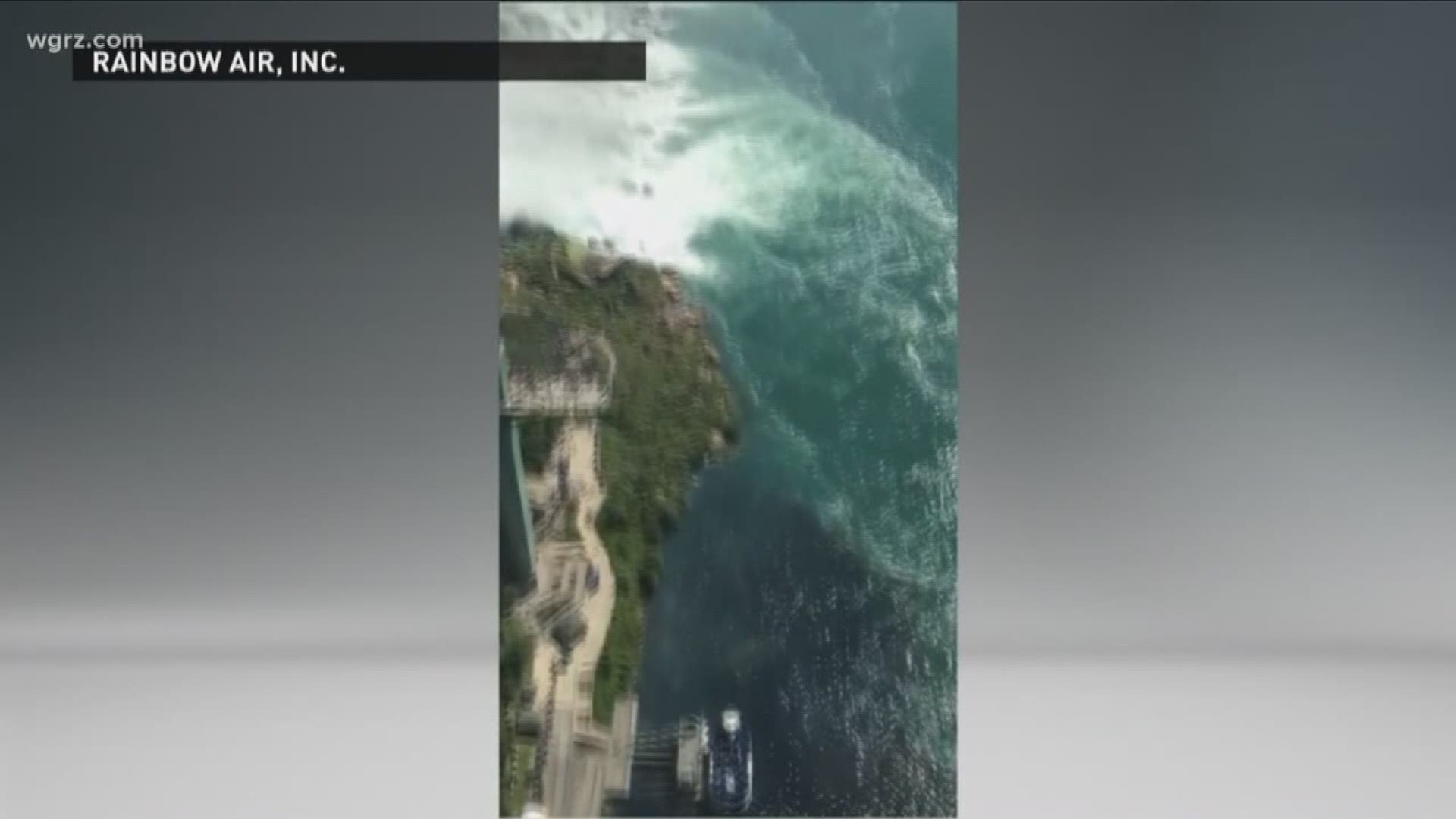Niagara Falls, NY - Last summer and fall, the discharge of wastewater sludge into the Niagara River near the Falls came as a shock to Western New York and the world. But state and local officials and the Niagara Falls Water Board say changes at the plant should help prevent a repeat of that disturbing situation.
Obviously there was a real focus after the images of discolored water near the Falls and Maid of the Mist boating landings were clearly seen from the air via helicopter. They actually went worldwide as there was major concern for the Falls as one of the scenic wonders of the world.
On Wednesday, Niagara Falls Mayor Paul Dyster was asked his opinion about the condition of the Niagara Falls Water Board's wastewater treatment plant and the chances of another such discharge from that plant.
"I think there have been some discharges since then but even with their existing equipment, their operating changes are helping to avoid these overflows," Mayor Dyster said. "That doesn't mean that the plant doesn't need to be rebuilt. It obviously does. It's gonna be a multi year undertaking. But it's good to see that they're taking their responsibility seriously. And that they're trying to do things in anticipation of the summer tourist season to avoid a repetition fo what happened at the end of July of last year."
The Niagara Falls Water Board released this statement:
“This coming summer the Niagara Falls Water Board does not anticipate facing the same discharge and overflow issues that were experienced in 2017. Over the last six months, the NFWB has made some significant wastewater treatment plant system technology tweaks and process improvements, working in concert with both outside engineering, counsel and the NYSDEC. One of the most important updates includes changing the procedures for dewatering sedimentation basin #5 and ensuring DEC oversight during any future dewatering activity with that specific basin. It is of course important to remember that not all overflow and color contrast issues can be fully eliminated without a full system overhaul at the entire treatment plant. The NFWB is currently studying that overhaul scenario and plans to unveil additional improvement strategies later this year."
The New York State Department of Environmental Conservation also responded this way:
"The New York State Department of Environmental Conservation (DEC) will continue to strictly monitor the Niagara Falls Water Board (NFWB) to ensure it is complying with its state permit and its obligations under the December 2017 Order on Consent. DEC receives regular reports from NFWB (https://nfwb.org/reports/other/) on its progress in meeting the demands set forth in the Consent Order. Under DEC’s aggressive oversight and multiple inspections of this facility, NFWB has undertaken actions at the facility to address many of the critical operational, maintenance, and staffing issues that contributed to the violations in 2017, reducing the risk of a recurrence of such events. DEC believes that a series of additional plant upgrade and repair projects currently under active under review and refinement would further reduce the risk of violations. DEC will continue to oversee the NFWB to monitor its progress on longer-term treatment plant and collection system improvements."

